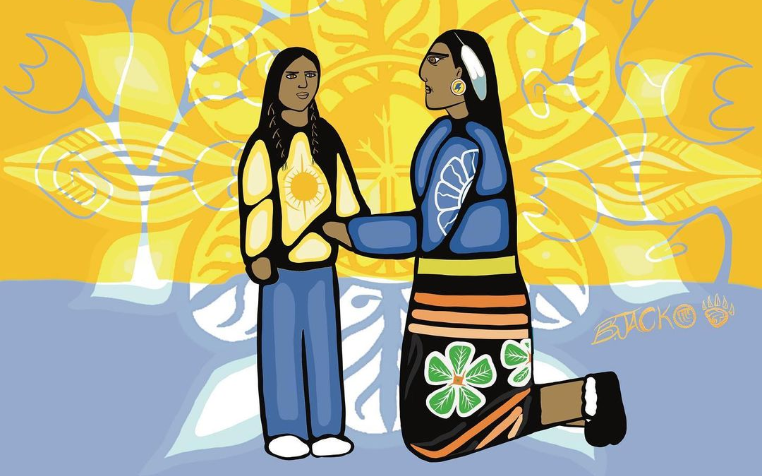
Delivering Women’s Health Equity
At the start of the COVID-19 pandemic in 2020, Anishnawbe Health Toronto had to quickly pivot its primary healthcare services to support people across a wide spectrum of social-economical situations. In order to meet community members wherever they were located, the Mobile Health Unit was introduced.
Culturally inclusive and responsive services were provided to those who were unhoused, often street-involved, or seeking refuge in park encampments. AHT partnered with Indigenous housing and community agencies to deliver on-site medical and social services including COVID-19 testing and vaccinations, wrap around health care services, and housing support.
Utilizing what was learned over the last three years, AHT is evolving its services yet again to continue delivering care to those that need it the most. By retrofitting our main mobile vehicle (an RV) to expand our reach and impact, AHT will be able to offer mobile breast and cervical cancer screening, prenatal care, as well as dentistry and diabetes prevention services to Indigenous people in the city.
This Mother’s Day, we want you to know why health equity for Indigenous women is critical.
Unfortunately, there are higher rates of cancers and cancer mortality within the Indigenous population. Breast cancer is among the top three causes of cancer death for Indigenous women (Cancer Care Ontario) and deaths from cervical cancer (30 years or older) are almost three times higher in First Nations females compared with other females in Ontario (Stats Canada).
Thankfully, we know that better access to screening programs is proven to reduce these rates. However, cancer screenings currently provided through community primary care services are underutilized by Indigenous people in Toronto. This is due to lack of primary care in neighbourhoods and areas of the city with high Indigenous populations.
Anishnawbe Health Mobile Health Unit will utilize existing primary care health centre resources and leverage hospital partnerships to support access to cervical cancer screening and prevention. Thanks to the retrofit of our vehicles, these services will be available in high-need areas of our city.
Low-barrier access to prenatal care is important because the Indigenous community has higher birth rates and higher numbers of teen pregnancies. The Toronto Our Health Counts study has shown that 20% of pregnant Indigenous people did not receive pre-natal care and scans until their second trimester or later and have higher rates of gestational diabetes. Indigenous births in the city are also two times more likely to be premature.
Anishnawbe Health aims to improve these rates and help Indigenous babies have a healthier start in life, and with your support we know it’s possible.
This Mother’s Day, our Foundation has partnered with Ojibway artist, Brandon Jacko, to offer you Indigenous-designed e-cards on our Canada Helps donation platform. You can choose from 1 of 2 Indigenous-designed cards to send to your mom and other important women in your life.
Proceeds from the e-card donation will support access to breast and cervical cancer screening services and prenatal care for Indigenous women in priority neighbourhoods in the Greater Toronto Area through our Mobile Health Units.
Show your mom you care about health equity for Indigenous women and babies. CLICK HERE to support Anishnawbe Health this Mother’s Day. Miigwech!

